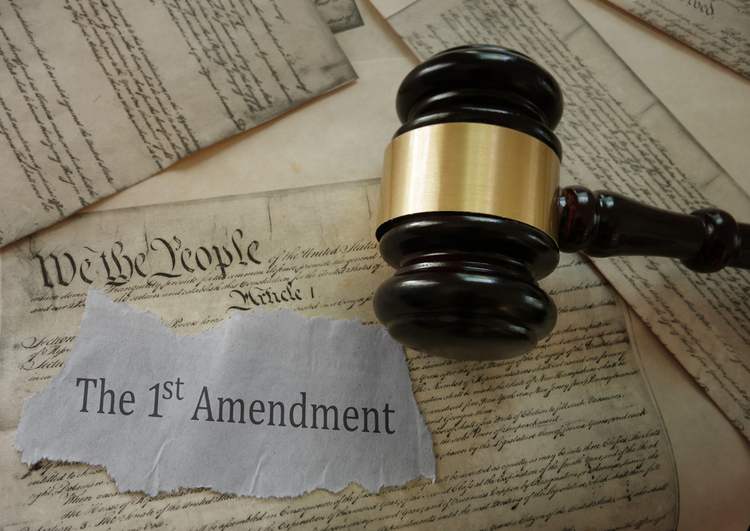9th Circuit rules against bikini baristas, rejects their First Amendment empowerment argument

Image from Shutterstock.
A federal appeals court has ruled against bikini baristas who challenged ordinances in Everett, Washington, that required them to cover up.
In a July 3 decision, the 9th U.S. Circuit Court of Appeals at San Francisco vacated an injunction that had barred Everett from enforcing the ordinances, report Law360, My Everett News, the Los Angeles Times and the Associated Press.
The unanimous 9th Circuit panel included two appointees of President Barack Obama.
Everett’s dress code ordinance had required employees and owners of quick-service facilities to cover “minimum body areas.” The city also broadened the definition of a “lewd act” misdemeanor to ban the display of specific body parts and created a new misdemeanor that bans people from encouraging lewd acts.
The owner of Hillbilly Hotties and some of its employees had challenged the ordinances. The 9th Circuit said the ordinances were not unconstitutionally vague under the due process clause and did not violate the right to free expression under the First Amendment.
Although the employees are often described as “bikini baristas,” their attire is often significantly more revealing than a typical bikini, according to Judge Morgan Christen, an Obama appointee who wrote the 9th Circuit opinion. Many wear little more than pasties and G-strings, and they “undisputedly solicit tips,” Christen wrote.
The plaintiffs had claimed that their minimal clothing had conveyed messages such as female empowerment, confidence and fearless acceptance of their bodies.
But the 9th Circuit said the plaintiffs were not likely to succeed on their free expression argument. “The baristas’ act of wearing pasties and G-strings in close proximity to paying customers creates a high likelihood that the message sent by the baristas’ nearly nonexistent outfits vastly diverges from those described in plaintiffs’ declarations,” Christen wrote.
The 9th Circuit also said the plaintiffs were unlikely to succeed in their argument that the expanded definition of “lewd conduct” was void for vagueness. The lewd conduct ordinance’s reference to the “bottom one-half” of the anal cleft “does no more than specify an easily ascertained fractional part of an otherwise well-understood area of the body,” the opinion said.
The court also said the plaintiffs were unlikely to succeed in their vagueness argument regarding the dress code ordinance, which required coverage of minimum body areas. The ordinance defined those areas as “breast/pectorals, stomach, back below the shoulder blades, buttocks, top three inches of legs below the buttocks, pubic area and genitals.” Those terms are sufficiently clear to preclude enforcement on a subjective basis, the court said.
Christen’s opinion was joined by Judges Sandra Ikuta and Jennifer Choe-Groves, a judge on the Court of International Trade who was sitting by designation. Choe-Groves is an Obama appointee. Ikuta was appointed by President George W. Bush.
See also:
ABAJournal.com: “Did sergeant in ‘bikini barista’ sting help drive-through coffee shops operate as strip clubs?”
ABAJournal.com: “Videos from police probe of bikini baristas are subject to open records law, judge rules”
ABAJournal.com: “Ban on baring of female breasts is likely unconstitutional, 10th Circuit rules”



